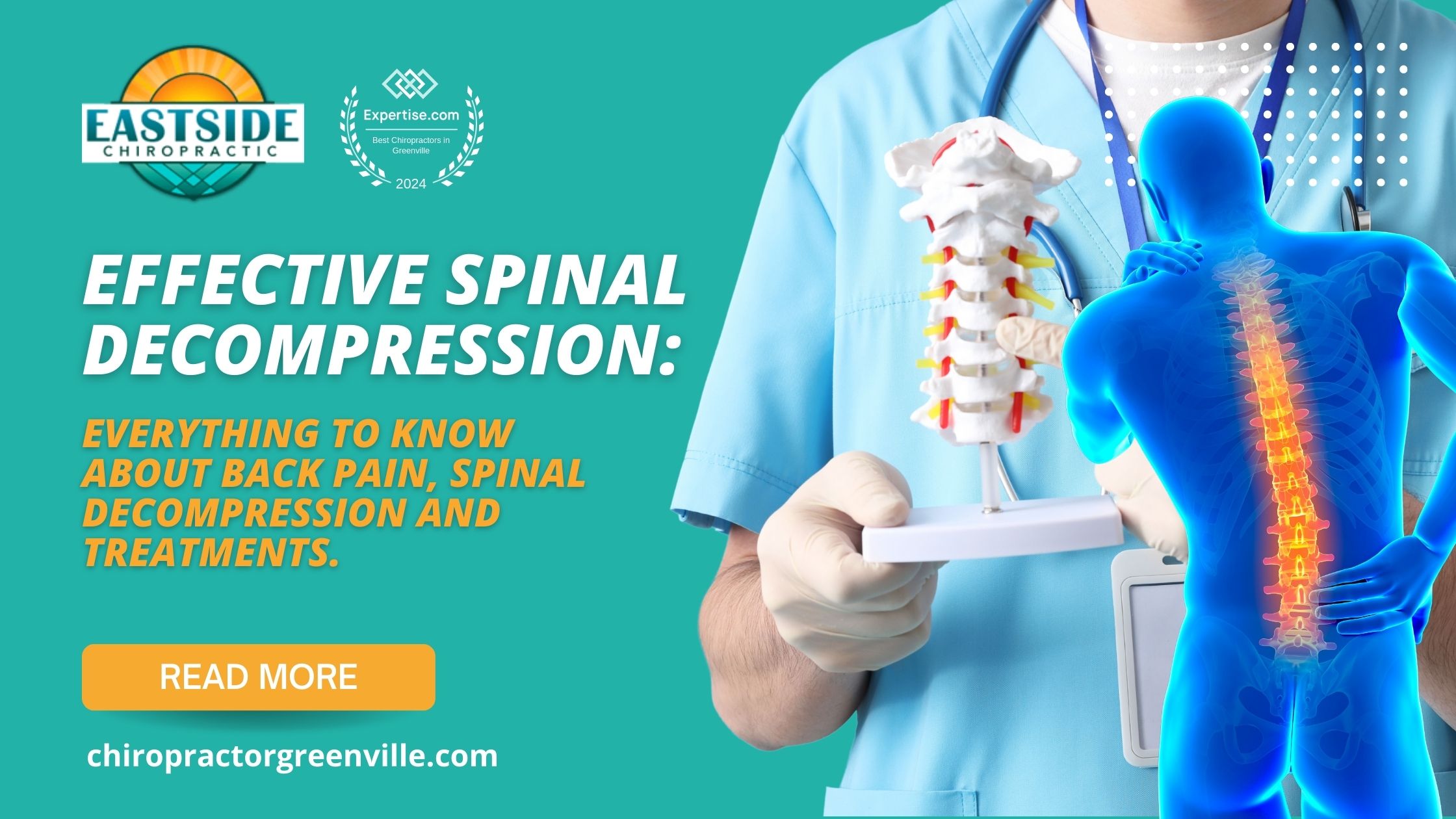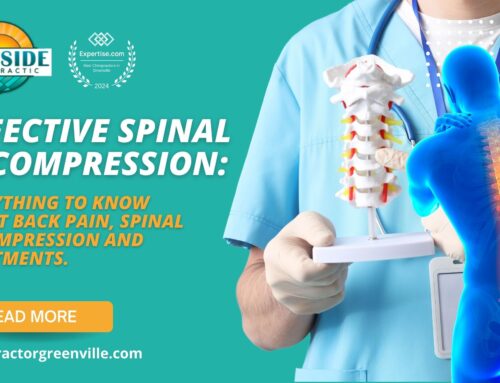Spinal Decompression vs. Surgery in Greenville, SC: Which is Right for You?
Article
Introduction
Choosing the right treatment for back pain can be a daunting task. In a world where spinal discomfort is common, often due to sedentary lifestyles or injuries, knowing your options is vital. At Eastside Chiropractic PA in Greenville, SC, we understand these challenges and are here to provide insights into two prevalent options: spinal decompression and surgery.
Understanding Spinal Decompression
Let’s dive into what spinal decompression is all about. Simply put, spinal decompression is a non-surgical therapy designed to relieve pressure on your spine’s disks. Think of it as gently stretching your spine, which can help reposition bulging disks and relieve nerves. This can be a game-changer for those dealing with pain due to herniated disks or sciatica.
One of the critical benefits of spinal decompression is the minimal downtimes and non-invasiveness. It’s essentially like giving your spine a relaxing spa treatment without the scalpel. It’s particularly appealing for individuals who are not keen on surgery or for whom surgery may not be medically advisable.
Demystifying Spinal Surgery
Now, let’s shift gears to understand spinal surgery. Spinal surgeries range from discectomy, laminectomy, to spinal fusion, each aimed at resolving different spinal issues. While surgery can be effective, it comes with more significant risks and longer recovery periods. It’s crucial to weigh these factors when considering surgical interventions, ensuring you’re fully informed about the potential outcomes and recovery path.
Comparing Spinal Decompression and Surgery
When it comes to comparing these two approaches, several factors come into play:
- Effectiveness: Spinal decompression may suit many with mild to moderate back issues, whereas surgery often addresses more severe spinal conditions.
- Cost: Surgery can be costly, especially when factoring in hospital stays, medications, and therapies. Spinal decompression, on the other hand, is generally cheaper.
- Recovery: While spinal decompression allows you to maintain most daily activities, surgery often requires weeks or months off your feet.
Why Choose Spinal Decompression?
Spinal decompression has become an attractive option for many due to its non-invasive nature. You skip the hospital stays, the extensive recovery periods, and the anxiety that often accompanies more invasive procedures. Moreover, the risk of complications is significantly lower, adding to the peace of mind.
When Is Surgery Necessary?
Of course, there are scenarios where surgery becomes a necessity. Severe cases of spinal instability or significant deformities might leave surgery as the only viable option. Prior health conditions and the degree of spinal degradation often dictate this necessity. It’s crucial to have an informed discussion with your healthcare provider to determine the right course of action.
Patient Testimonials: Spinal Decompression Success Stories
Here at Eastside Chiropractic PA, we’ve witnessed numerous success stories right here in Greenville. From individuals returning to their favorite hobbies to others getting back to work pain-free, spinal decompression has positively transformed many lives.
Choosing a Reliable Provider in Greenville, SC
Choosing the right provider for spinal decompression involves considering several factors, such as the provider’s expertise, the technology they use, and their ability to customize treatment plans. You want a team dedicated to personalized care and up-to-date techniques.
About Eastside Chiropractic PA
At Eastside Chiropractic PA, we pride ourselves on offering top-notch care. With years of experience serving the Greenville community, we focus on non-invasive therapies that cater to individual needs. Our spinal decompression service is among our core offerings, equipped with the latest technology and practiced by skilled professionals.
Steps to Getting Spinal Decompression at Eastside Chiropractic PA
- Initial Consultation: Meet with our chiropractor to discuss your pain and medical history.
- Developing a Treatment Plan: We’ll craft a personalized plan that’s just right for you.
- Costs and Insurance Options: Discuss cost estimates to make the process seamless. Unfortunately, this therapy cannot be covered by insurance.
Lifestyle Changes and Tips for Post-Treatment
Post-treatment, minor lifestyle adjustments can significantly promote long-term spinal health. Incorporating simple exercises that strengthen your core can do wonders for your spine. Additionally, watching your posture, especially during work, can prevent future issues.
Beyond Treatment: Maintaining a Healthy Spine
We also advise maintaining a spine-friendly diet and regular chiropractic check-ups. These not only prevent potential issues from returning but also enhance overall well-being.
Conclusion
Ultimately, the choice between spinal decompression and surgery should be informed and tailored to your specific condition. We’re here to support your journey to spinal health with expert advice and state-of-the-art treatments. If you’re in Greenville, SC, consider giving Eastside Chiropractic PA a call to explore your options.
FAQs
1. What’s the main advantage of spinal decompression over surgery?
- Spinal decompression offers a non-invasive alternative with little to no recovery time compared to surgery, making it a great option for many.
2. Can spinal decompression help with all types of back pain?
- While it can relieve many types of back pain, not all conditions are suitable for spinal decompression. A consultation can determine if it’s right for you.
3. How long does a typical spinal decompression session last?
- Typically, sessions last between 30 to 45 minutes.
4. Will my insurance cover spinal decompression?
- This treatment is not covered by insurance. It’s best to discuss options and payment plans during your consultation at Eastside Chiropractic PA.
5. How soon can I expect relief after starting spinal decompression therapy?
- Many patients report relief after just a few sessions, although it may vary based on individual conditions.


